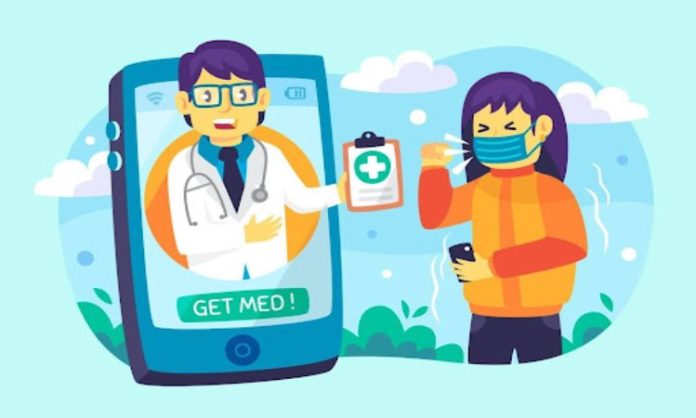Gen Z refers to the generation born between the mid-1990s and the early 2010s. Unlike previous generations, Gen Z grew up surrounded by technology, making them more comfortable and adept at using digital tools, including healthcare apps. They are more likely to rely on smartphones and apps for managing their health, compared to older generations who may prefer traditional methods.
Gen Z is known for being fitness-conscious, valuing physical and mental well-being. They are keen on exploring new healthcare apps that help them track various aspects of their health, such as calorie intake, diabetes management, blood pressure, and heart rate. These apps offer convenience and real-time data, allowing Gen Z to monitor their health and make informed decisions about their lifestyle choices.
Moreover, Gen Z is more inclined towards online shopping, including ordering medicines and supplements through e-pharmacy platforms. They appreciate the convenience of having healthcare products delivered to their doorstep and are willing to explore different options to find the best deals and products for their needs. Overall, Gen Z’s approach to digital healthcare reflects their tech-savvy nature and proactive attitude towards health and wellness.
Generation Z and the Doctor-Patient Relationship
Generation Z, often called “digital natives,” grew up with the internet, making Google their go-to for health questions. Unlike older folks who rely more on their doctor’s advice, Gen Z tends to search online first. Younger generations are really into health tech like fitness trackers. Even though Gen Zers are mostly teens and don’t have much money, they’re still super interested in wearables. Millennials and Gen Z are big on using wearable gadgets.
While the millennials usually chat with friends, relatives or visit doctor’s clinic to discuss health stuff, Gen Z, having grown up with smartphones and social media, and often self medicate or use digital communication over traditional face-to-face interactions. They may feel more comfortable discussing health concerns and seeking medical advice through online healthcare apps and messaging apps. They are raised in an era of instant gratification and readily available information, Gen Z expects quick answers to their health-related queries. They are likely to turn to online resources and healthcare apps to research symptoms, treatment options, and medication information before consulting a healthcare professional.
With so many digital health tools for fitness tracking, mental wellness, and preventive screenings, they are more likely to engage in proactive solutions rather than waiting for illness to get worse.
Gen Z is also inclined for personalised experiences and tailored solutions. They seek guidance from who understand their unique needs and preferences, and they may gravitate towards telemedicine services or digital health platforms that offer customised recommendations and treatment plans.
Generation Z is increasingly vocal about mental health issues and the importance of destigmatising mental illness. They may seek out healthcare providers who prioritise mental health support and offer accessible resources for counselling and therapy, both in-person and online.
Harnessing the Power of Information
For doctors working with Gen Z, the big task is making sure the info they find online is correct. There’s a lot of wrong stuff or incomplete information out there. Incomplete or wrong information about healthcare can lead Gen Z to make decisions that might not be good for their health. If they rely on incorrect info from the internet or social media, they could end up with the wrong diagnosis or treatment.
It’s crucial for them to consult a doctor because doctors are trained to give accurate advice and treatment. Doctors can help them understand their health issues better and make informed decisions about their well-being. Consulting a doctor ensures that Gen Z gets the right guidance and care for their health concerns, leading to better outcomes and overall well-being. To resolve these issue, many online pharmacies provide online doctor’s consultation where you can interact with doctor for your concerns.
How We Chose the Best Online Healthcare Apps
Here are 9 tips to choose the best medical app online:
- Choose the app that suits your needs: Look for an app that meets your specific healthcare requirements.
- Onboard team of qualified doctors: Doctors can provide professional medical advice tailored to individual needs, which is crucial for accurate diagnosis and treatment. Consulting a doctor can confirm whether the information obtained from the app is accurate and reliable, helping users make informed decisions about their health.
- Check reviews: Read reviews from other users to see their experiences with the app.
- Verify credentials: Ensure the app is developed by a reputable healthcare organisation or approved by healthcare professionals.
- Check features: Look for apps that offer the features you need, such as appointment scheduling or medication reminders.
- Easy usability: Choose an app with a user-friendly interface that’s easy to navigate.
- Security and privacy: Ensure the app takes your privacy seriously and protects your personal information.
- Cost and value: Consider the cost of the app and whether it provides value for the services offered.
Customer support: Check if the app offers customer support in case you have questions or issues.
Read Also: Understanding the uses and benefits of Z And D DS 20 Suspension for Pediatric Health


